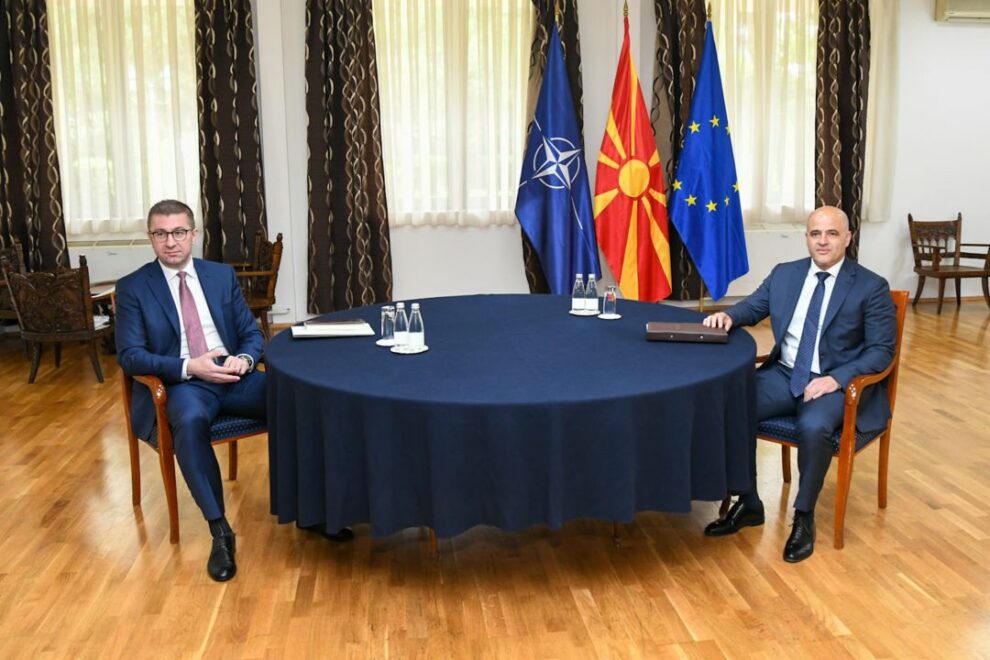The aftermath of last Wednesday’s meeting between North Macedonia’s Social Democratic PM Dimitar Kovacevski and the main opposition VMRO DPMNE leader Hristijan Mickoski has brought more confusion and conflicting information.
In an interview published on Monday, Mickoski insisted that the PM had got it wrong when, over the weekend, he claimed that the opposition had budged on the issue of constitutional change.
Kovacevski maintained that the opposition has agreed to participate in the work groups that are preparing the change that should see ethnic Bulgarians added to North Macedonia’s constitution as one of the country’s constitutive peoples.
Mickoski called the claims a “persistent manipulation” by the government.
“Throwing dust around is counterproductive, because it is clear that the leaders’ meeting produced no agreement – and we are still waiting a response from the Social Democrats on which of the two proposals that we offered are acceptable,” Mickoski told Deutsche Welle.
The proposals he said he’d offered the PM are either an agreement for early elections in autumn, and then a bid for constitutional change, or the expulsion from the government of the junior ruling Democratic Union for Integration, DUI, which it accuses of corruption – and the formation of a transitional government, which would include the opposition.
This new government, among other things, would then deal with the constitutional change.
In either case, the opposition said, it would potentially support the constitutional change only if its practical implementation is delayed until the country joins the EU.
North Macedonia last year agreed to add Bulgarians to the constitution’s preamble, naming them as one of the constitutive people of the country, and hopefully ending a two-year Bulgarian blockade of the country’s EU integration process.
It was agreed as part of a deal struck under the auspices of the then French EU presidency, under which Skopje has roughly until November this year to make the change, unless it wants to risk a further Bulgarian blockade.
Since 2020, Bulgaria, has blocked the start of EU accession talks for North Macedonia over historical disputes between the two countries. Bulgaria insists that the Macedonian identity and language are of Bulgarian origin, a claim that most Macedonians reject.
It also insists that there is no ethnic Macedonian minority in Bulgaria, but that there is a big Bulgarian minority in North Macedonia, which is being repressed. The last 2021 headcount in North Macedoniacounted just over 3,000 Bulgarians, however.
Skopje earlier this year launched preparations for the unpopular constitutional change, but VMRO DPMNE has refused to participate in the body formed to draft the change, citing a lack of clear guarantees that Bulgaria won’t block the country once again, even if the concessions are duly made.
The government has yet to convince a majority in parliament to push the vote through. It needs a two-thirds majority in the 120-seat parliament for the change to pass. However, it is estimated to be at least eight MPs short of reaching this target.
Source: Balkan Insight










